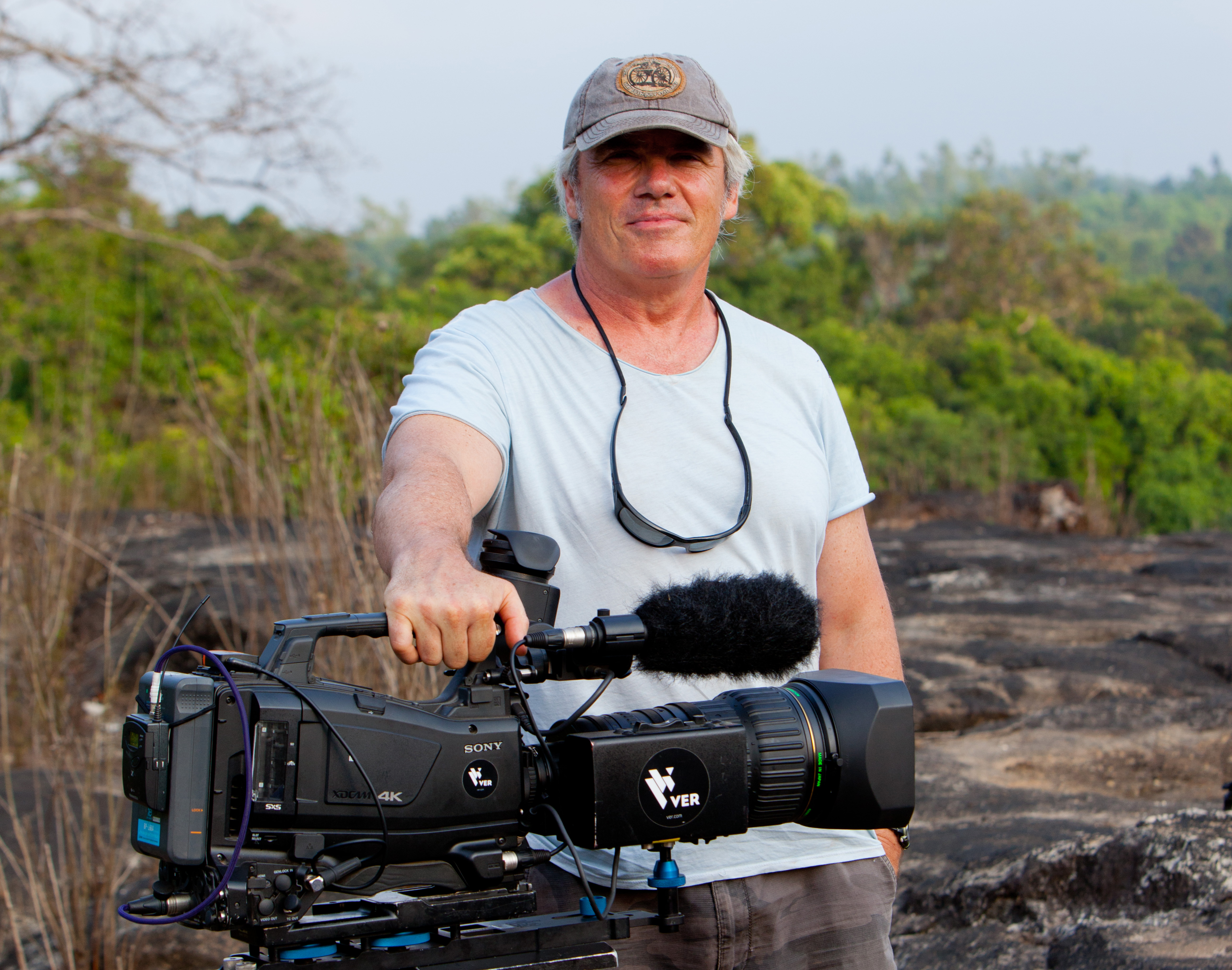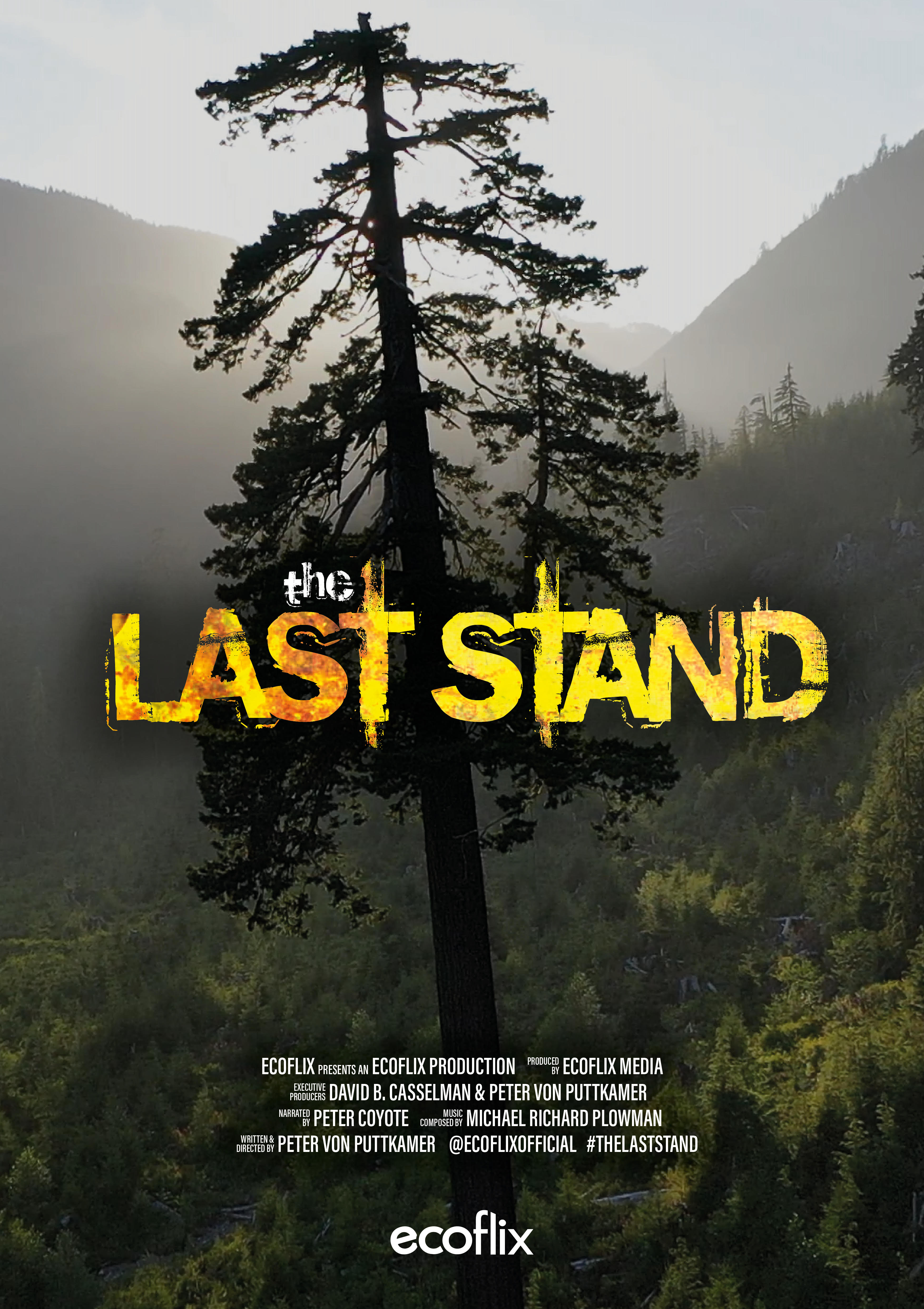I’ve been a filmmaker all my life- producing films and documentaries for over 45 years. I’ve created, written/directed, executive produced dozens of Documentaries, TV Specials and series, including award-winning programs for such networks as Discovery Channel, History, BBC, PBS, CBC, ITV, Animal Planet and National Geographic. Throughout the period, I developed a keen interest in First Nations in Canada and the US. This interest began at childhood: growing up alongside Coast Salish people, as my father worked with them to create some of the first Aboriginal Tourism initiatives in British Columbia.
Over the decades, working alongside First Nations, making films on social, cultural and health issues we were able to create shows with societal impact…and promote positive change. The newest exciting opportunity that has come my way is the chance to work with Ecoflix, the world’s first environmental non-profit streaming/media service.
In the summer of 2021–, founder and CEO of Ecoflix,– David Casselman, asked me to travel on behalf of Ecoflix to Fairy Creek, British Columbia on Vancouver Island. British Columbia on Vancouver Island. The plan was to document the battle to save Old Growth trees in British Columbia, but also to bring in a broader perspective of global ancient forest destruction in the Amazon and elsewhere.
The Last Stand film’s content is divided between the protest at Fairy Creek, and the impact of industry and government on Amazonian rainforests and Asian jungles. Environmental spokespersons like Exec. Director of Amazon Watch Leila Salazar Lopez and my colleague, famed Author/Ethnobotanist Wade Davis appear in the film to address the issues. Celebrated Actor/Activist Peter Coyote (Ken Burns’ The West, The Vietnam War, Hemingway, etc) narrates the documentary. Solutions to stop climate change, including the latest cutting-edge offerings from Silicon Valley are featured in the film.
Growing up in the forests and mountains of British Columbia and alongside First Nations cultures, I’ve always had a deep understanding of the precious nature of these wild cathedral-like places. For First Nations cultures, like the Kwakwaka’wakw people, this is the place young initiates come to for solitude, cleansing, and to face their fears: the Hamatsa (Wildman) comes on his/her journey to pass from youth to adult and to be welcomed back to their community. In the mid-nineties, close to Fairy Creek, I helped the Huu-ay-aht First Nation (Nuu-chah-nulth) make the case that their precious Sarita River (destroyed by clear-cut logging) needed to be brought back to life; the message of this Gemini-nominated film (Canadian Emmy), was enough to convince the Federal and BC governments to invest money into the restoration of the River habitat: hopefully bringing back millions of salmon, plus the wolves, seals, as well as native culture itself crushed by years of oppression. This has begun to happen there, some 25 years later. As has job creation, through management of their forest resources. Film can initiate positive societal change.
Science has known for years that while we need wood to build our houses and make paper, we also need these massive rainforests trees to produce Oxygen for the atmosphere and retain the carbon greenhouse gas C02. We’re at a stage on this planet now where these places of giant trees and rich bio-diversity: magnificent ancient forests, are disappearing from the earth and all but gone in a few places. One such place, is at Fairy Creek, British Columbia. Recent scientific studies show that less than 3% of harvestable old growth forests remain in the province.
A logging company- Teal Jones has been granted cut permits to rare Old Growth Cedars & Douglas Firs in Fairy Creek, also traditional territory of Pacheedaht First Nation, whose people are divided on logging the area. Beginning in August 2020, activist blockades have been set up along logging roads to stop access to those sites. Locked into “sleeping dragons” steel pipes buried in the ground, or high up in trees, or arms linked, standing across a logging road…the Forest Defenders have been firm in their resolve to stop the cutting of old growth.
Our visit there to make The Last Stand documentary was intense, and Forest Defenders known as the Rainforest Flying Squad, gave us access. The shoot began with locating key speakers deep in the forested mountains of South-West Vancouver Island. People had nicknames/passwords to hide their identity so that Police and other enforcers would not know their real names. We spoke to forest supporters from as far away as Vietnam,
Japan and India and spoke with First Nations speakers, young people from across Canada and locals who knew these mountains well and did not want to see the remaining Old Growth destroyed. We filmed dramatic road blockades and barriers lined with old cars and piled logs to discourage logging trucks from passing through.
We ended up in a dramatic camp, called “Red Dress”. Here a huge logging clear-cut dominated the landscape: an ugly stump-lined wound reaching miles up the mountainside. It had been decorated with hundreds of dramatic red dresses by the protestors: symbolic of the missing and murdered indigenous women, who all to often disappear along highways (like Prince George’s Highway of Tears)- frequented by roughnecked truckers driving logging and mining trucks- a symbol of the rape and destruction of the land and its women. Though hard to prove definitively, the people here, feel there is a connection of colonial oppression.
At one stage, upon hearing the RCMP (Police) had blockaded access to the logging roads and protestor camps to the press, our crew found itself on a steep 40-degree slope heading down into the Valley where the protest camps lay. Our small team, including soundman Pete Wonsiak and 2nd camera/Assoc. Producer Michele Gonda slipped, slid and crashed over ultra-steep dusty gravel and pine needle laden slopes: culminating with even more precipitous decent. We used a rope hanging over a small cliff/ravine to cling to as we scrambled down the rock face. Carrying packs filled with heavy equipment we went down hand over hand on the rope, then traversed over fallen logs and giant boulders in a dry creek bed to reach our goal.

Ultimately, we traveled down in the fading light as far as we could and flew our drone over the protestor camps lining the logging roads. A wide array of additional footage was collected over the course of editing, from brave amateur and expert camerapersons who lived on the front lines of Fairy Creek sometimes for weeks and months in the cold and wet, to document the conflict.
The Last Stand documentary was made to impact people and make a difference. Protests such as this in the past, have forced governments into saving the wilderness areas from certain destruction.
In presenting a broader global perspective of the epic Protest to Save the Big Trees at Fairy Creek, we showed how these efforts, no matter where they are, or how long they last, can all make an impact. A strong message from peaceful protestors can tell corporations and the powers that be worldwide, that the people will not stand for the final destruction of the world’s much needed forests.
Everyone involved in this struggle understands that we need wood in our societies for a lot of purposes. Ok, maybe we don’t need to cut down giant trees to make toilet paper, which is the case in North America. So, there is a limit. Even the most fervent protestors we spoke do agreed that this is a battle not against logging, but for the Ancient Trees: huge groves of pristine rainforest that hold carbon and nurture incredible biodiversity. The Last Stand is a plea from people on the front lines who want to make a difference and stop the cutting of these precious and pristine green places.

Fairy Creek, BC
The Last Stand can be streamed from 22nd April on Ecoflix.com


